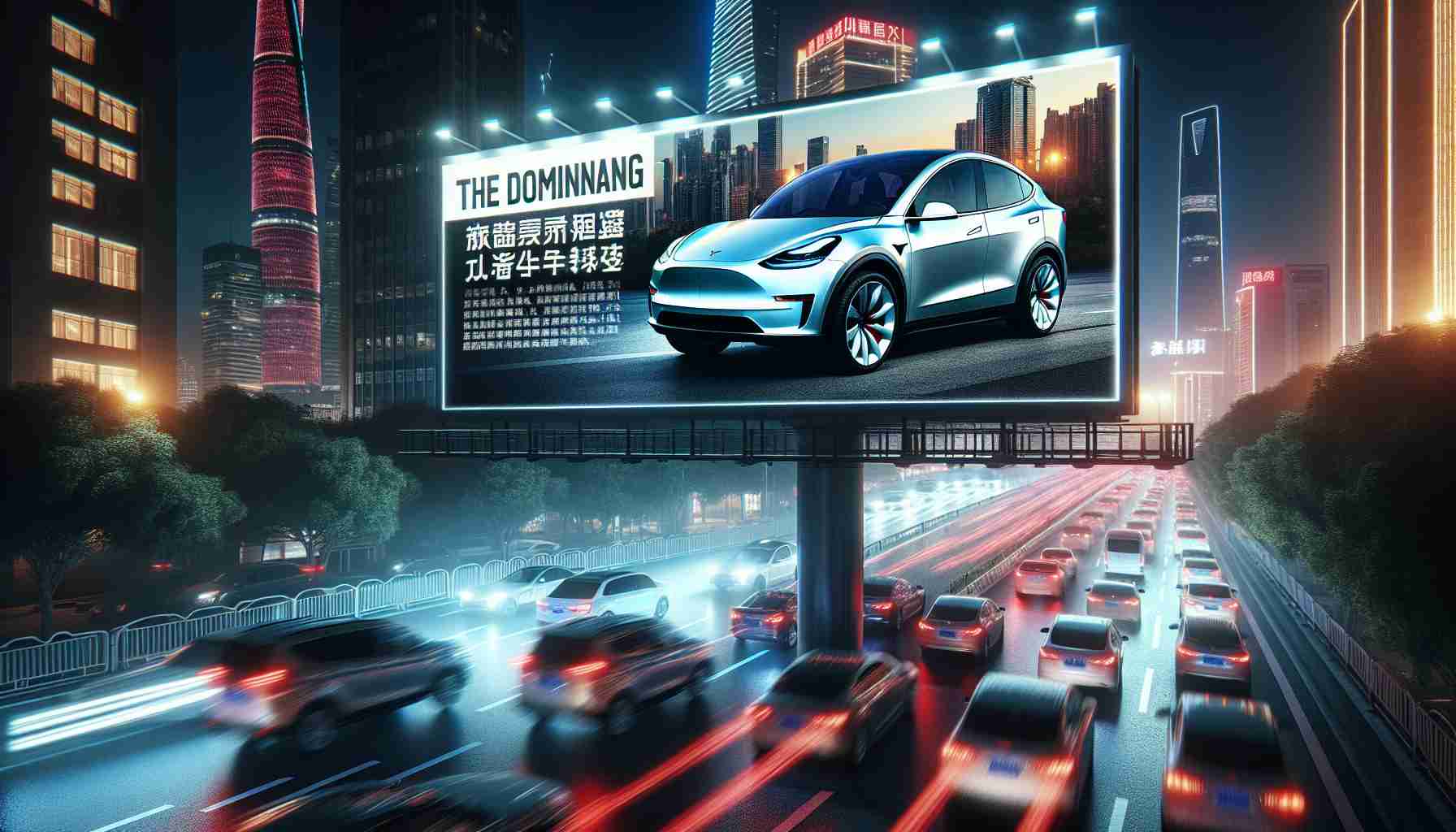Tesla Model Y Takes the Lead in China
In a stunning development for the automotive industry, the Tesla Model Y has claimed the title of the best-selling vehicle in China for 2024. Its success is particularly notable in major urban centers where it surged ahead of competitors.
Recent analyses reveal that the Model Y achieved outstanding sales figures in two of China’s foremost cities, Beijing and Shanghai. In Beijing, the all-electric crossover reached remarkable sales of 20,631 units, outperforming all other models. This figure set it apart as the only vehicle in the city to cross the 20,000-unit threshold. Meanwhile, in Shanghai, the Model Y also excelled, recording 30,491 units sold, affirming its status as the city’s top seller. Following closely was the Tesla Model 3 sedan, which notched 12,526 units in sales.
Even as competition stiffened in Guangzhou, the Model Y secured its place as the second-best-selling vehicle, racking up 18,239 units.
These sales milestones signify Tesla’s growing influence within China’s electric vehicle landscape, especially in first-tier cities known for their economic vibrancy and sophisticated consumer base. With Beijing serving as the political epicenter and Shanghai as a financial powerhouse, Tesla’s thriving sales reflect a robust demand for electric vehicles among affluent urban consumers.
The future looks bright for Tesla’s continued expansion in this competitive market.
Implications of Tesla’s Ascendancy in China’s Auto Market
The surge of the Tesla Model Y as the best-selling vehicle in China carries significant implications for society and culture, particularly in urban areas where car ownership reflects status and lifestyle choices. As China grapples with severe air quality issues and the pressing need for sustainable alternatives, the success of electric vehicles (EVs) like the Model Y can catalyze a broader societal shift toward eco-conscious consumerism. The vehicle’s popularity can also influence public policy, pushing for more robust infrastructure concerning EV charging stations and green technology incentives.
Moreover, the global economy stands to benefit from this trend. Tesla’s dominance in China’s market may prompt other traditional automakers to accelerate their transition to electric vehicles, thereby bolstering international trade relations and technology sharing. The competitive landscape could foster innovation, driving down costs and expanding consumer access to EVs across the globe.
From an environmental perspective, the rise of the Model Y exemplifies a tactile commitment to reducing carbon emissions. EVs have been linked to lower greenhouse gas outputs compared to traditional vehicles. However, it is critical to address the environmental concerns regarding battery production and disposal, which continues to challenge the sustainability narrative.
In terms of future trends, Tesla’s success may herald a broader acceptance of EVs, pushing other manufacturers to amplify their offerings. This potential paradigm shift could lay the groundwork for long-term significance, positioning China as a leader in green technology and redefining global automotive industry standards moving forward. As the demand for cleaner transportation rises, the implications of Tesla’s leadership could resonate far beyond automotive sales, influencing environmental policies and economic strategies worldwide.
Tesla Model Y Dominates the Chinese Automotive Market in 2024
Tesla Model Y Takes the Lead in China
In a significant milestone for the electric vehicle sector, the Tesla Model Y has emerged as the best-selling vehicle in China for the year 2024. This achievement underscores Tesla’s growing presence in one of the largest automotive markets in the world, particularly in key metropolitan areas where demand for electric vehicles is surging.
Key Sales Figures
The Model Y’s performance has been nothing short of impressive:
– In Beijing, the Model Y sold 20,631 units, making it the only vehicle in the city to surpass the 20,000-unit mark.
– In Shanghai, sales soared to 30,491 units, cementing its status as the top-selling vehicle in the city.
– In Guangzhou, though competition is fierce, the Model Y still managed to secure 18,239 units, ranking as the second-best-selling vehicle.
These figures highlight Tesla’s ability to penetrate the affluent urban markets of China, where environmentally conscious consumers are increasingly favoring electric vehicles.
Market Insights and Trends
The success of the Model Y is reflective of broader trends in the Chinese automotive industry:
– Growing Demand for EVs: According to industry analysts, China’s consumer base is rapidly shifting towards electric vehicles, driven by environmental concerns and government incentives.
– Urban Concentration of Sales: Major cities like Beijing, Shanghai, and Guangzhou lead in electric vehicle adoption, suggesting that Tesla’s urban-focused strategy is paying off.
Pros and Cons of the Tesla Model Y
Pros:
– Environmental Impact: As an all-electric vehicle, the Model Y contributes to reduced carbon emissions.
– Brand Recognition: Tesla’s reputation as a leading EV manufacturer enhances consumer confidence.
– Advanced Technology: Features such as autopilot capabilities and high performance attract tech-savvy consumers.
Cons:
– Price: The Model Y is positioned in the premium segment, which may limit its appeal to budget-conscious buyers.
– Competition: Other manufacturers are ramping up their electric offerings, which could challenge Tesla’s market share in the future.
Future Predictions
With its current momentum, analysts predict that Tesla could continue to dominate the Chinese market. However, it will need to stay ahead of the competition, particularly from local manufacturers like BYD and NIO, who are also innovating rapidly.
Security Aspects and Innovations
Tesla’s commitment to security and innovation is a critical aspect of its appeal. The company regularly updates its software, ensuring that vehicles are equipped with the latest security features and performance enhancements.
Sustainable Practices
Tesla is also focused on sustainability beyond just electric vehicles. The company has made strides in reducing its manufacturing footprint and improving battery recycling processes, appealing to eco-conscious consumers.
In conclusion, the Tesla Model Y’s rise as the best-selling vehicle in China signals a robust demand for electric vehicles in urban areas. As Tesla continues to innovate and adapt to market trends, its influence in China’s automotive landscape is likely to grow further. For more information on Tesla’s offerings and sustainability efforts, visit the official Tesla website.












